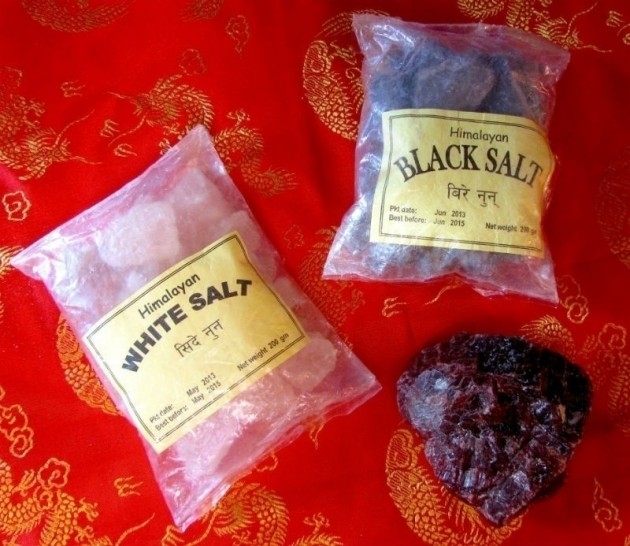Chronic sinusitis is often associated with an allergic individual, and dental infections account for 25% of chronic maxillary sinusitis. Swimming and diving, and injury to the area (especially fractures to the ethmoid or frontal sinuses) are other precipitating factors. Chronic sinusitis may present as acute sinusitis or may be relatively asymptomatic presenting with only mild postnasal discharge, recurrent headaches, musty odor, or a nonproductive cough. X-rays may reveal a thickening of the mucous membranes, though cultures of the nose and nasal discharge uncover no pathogenic organisms.
NOTE: With chronic sinusitis that seems to go away after an antibiotic then returns consider Candidiasis. (See
Candida Albicans section of the Nutrition Reference Guide.)
Signs and Symptoms
- Tenderness to palpation, swelling, redness, and opaque trans-illumination of involved sinuses
- Fever, chills: suggest expansion of the infection beyond the sinuses
- Nasal congestion and serous or mucopurulent discharge (usually yellow or green, and can often excoriate the nasal tissues)
- Malaise
- Headache and/or dizziness that changes with position and is worse lying down or bending over
- History of upper respiratory infections, dental problems, nasal allergies, or injury to the area
- Nasal mucosa is erythematous and edemic, and the exudate may be seen in the turbinates corresponding
to the infected sinus(es)
Specific Areas of Infection
- Frontal: pain over the forehead, above the eyebrows
- Maxillary: pain around cheekbones, toothache, and frontal headache
- Ethmoid: "splitting" frontal headache, pain behind and between the eyes
- Sphenoid: usually less clearly defined, but often manifests as tenderness and pain around the vertex of
the skull, the mastoid areas, and the occiput
Lab Findings
- X-rays clearly show the sites of involvement and to what degree: the radiograph will pick up the swollen mucous membrane or the exudate. X-rays of the apices of the teeth are mandatory to rule out a periapical abscess when there is chronic maxillary sinusitis
- Cultures not reliable
Suggested Nutritional Supplementation
Acute Management
- Sinus Remedy (HP7) - Acute: 10-15 drops under tongue every 30-60 minutes; decreasing to 3-4 times daily. Chronic: 10-15 drops 1-3 times daily. First Aid: 10-15 drops every 5-30 minutes.
- Sinuplex - 2-4 tablets daily as needed. Healthy sinus and lung support.
- HistaRest - Adults: 1-2 capsules twice daily with juice on empty stomach
Children 8 years or older: 1 capsule once or twice daily with juice on empty stomach. HistaRest is a scientifically designed nutritional supplement free of pseudoephedrine,
phenylpropanolamine, and other synthetic antihistamine chemicals. Herbal compounds utilized are void
of side-effects such as excitability or drowsiness. This product does not contain caffeine, theophylline, or
ephedrine.
NOTE:If patient has a history of antibiotic use, add UltraFlora Plus to the protocol.
Chronic Sinus Condition Management
- Perimine - 1-2 tablets twice daily with food
Patented, Flavonoid-Rich Perilla Seed Extract.
Perimine features a patented extract of Perilla seed (Perilla frutescens), a unique herb that supports a healthy immune response in individuals who may be sensitive to certain food or environment factors. Dried Perilla seed and leaves have both historical and modern applications in Traditional Chinese Medicine to alleviate chest fullness, support healthy mucus secretion, and promote healthy breathing.
- Sinuplex - 2-4 tablets daily as needed. Healthy sinus and lung support.
- Nazanol -1-2 tablets 2-3 times daily (based on severity of condition) on empty stomach. Natural, stimulant-free herbal support for healthy sinus, nasal and lung function.
Avoid
- Food and environmental intolerances (see antigen section in appendix)
- Dairy products, all catarrh-forming food (tomatoes, oranges, sugar, sweets, coffee, caffeine, processed and refined foods, heavy protein foods, fats, meats, vinegars, shellfish).
Contributing Factors
Acute sinusitis
- dental abscess
- response to exposure to airborne irritant
- immunosuppressive disease or chronic viral fatigue syndrome
Chronic sinusitis
- allergies
- exposure to irritating gases/dusts/tobacco smoke
- Kartagener's syndrome, immunosuppressive disease, or chronic viral fatigue syndrome
Tumors
Rule out a tumor especially in an individual complaining of repeated attacks of acute sinusitis, or chronic symptoms
notably including recurrent epistaxis while no pathogenic organism can be found.
- osteoma (benign) carcinoma of the maxilla
- sarcoma Burkitt's lymphoma
- myeloma adenocarcinoma
- melanoma of the nasal cavity
Dietary Suggestions
- Modified Elimination Diet






